
Jochem Vanagt
@jochemvanagt
PhD Candidate in Political Science | KU Leuven & University of Antwerp @m2p_be | affective polarisation, radical-right voting & democratic support
ID: 1563169078352625664
https://jochemvanagt.github.io 26-08-2022 14:18:48
61 Tweet
216 Followers
238 Following

Now out at PNAS Nexus! "Affective polarization is uniformly distributed across American states" with Yphtach Lelkes and Sean Westwood. The hits keep coming for Polarization Research Lab 💪 🔗: doi.org/10.1093/pnasne…
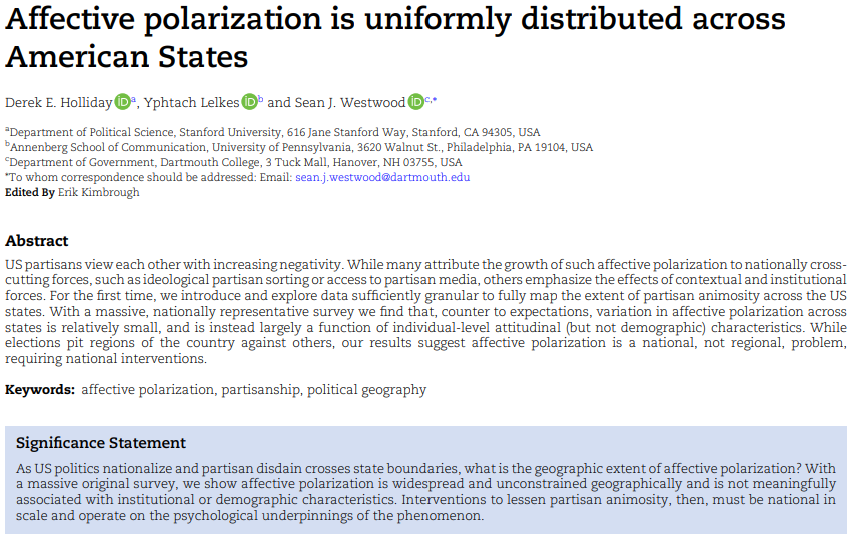

🚨 Strengthening Americans’ Democratic Attitudes🚨 For the last 4 years, we crowdsourced and tested ideas for ⬇️ antidemocratic attitudes & partisan animosity. A 🧵 on all papers, published/IP Science Magazine (🆕tinyurl.com/sdcsci🆕), PNASNews (2x), Nature Human Behaviour (2x).
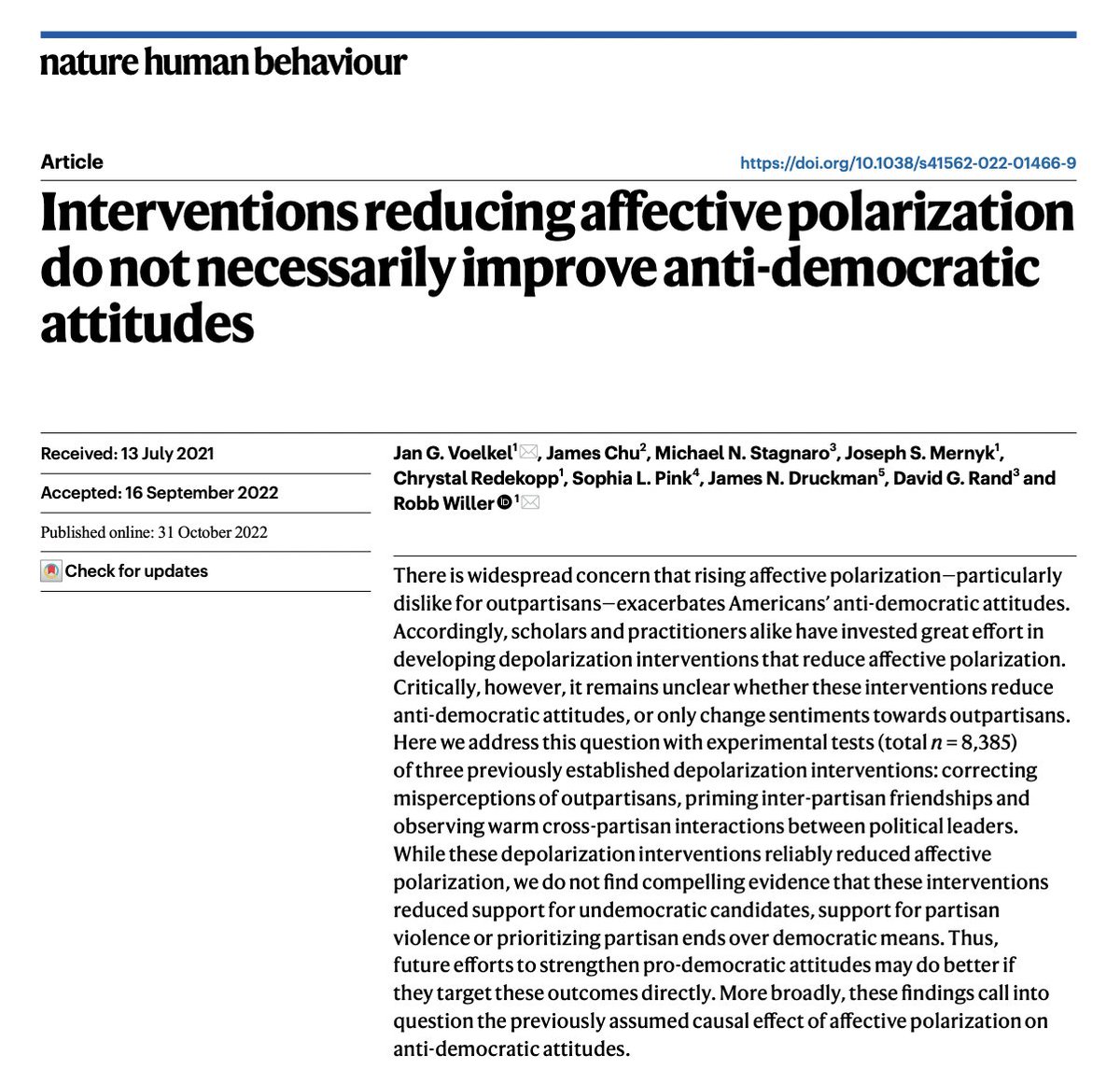

Join us for the European Consortium for Political Research joint sessions in Prague!! Hannah Werner and I are organizing a panel on citizens' democratic commitments in polarised times 📅 May 20-23, 2025 🕛Submission deadline: 21-11-24 📝Submit here: ecpr.eu/Events/Event/W…



Does Mainstream Populism Work❓ Happy to see my paper on "Populist Rhetoric and the Electoral Fortunes of Mainstream Parties" being accepted (conditional on replication) at PSRM Journal❗️ Read the full 📰 here: osf.io/wb8ev A quick summary in the 🧵 below:
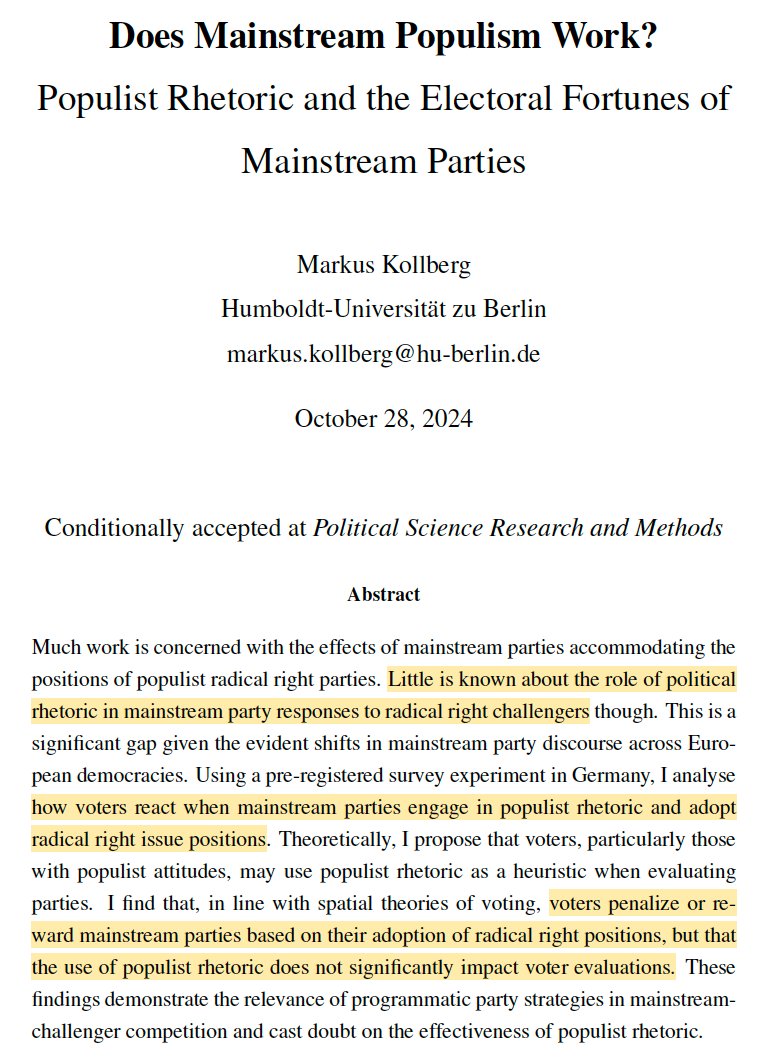

I have the honor to share the Handbook of Affective Polarization that I co-edit with Eelco Harteveld. It is open access, pre-registered preprint: Torcal, M., & Harteveld, E. (2024, November 1). Handbook of Affective Polarization. doi.org/10.31219/osf.i… UPF Barcelona RECSM-UPF

Are individuals facing economic insecurities more affectively polarised? Based on survey data from 11 European countries, Jochem Vanagt & Luana Russo 🇮🇹🇧🇪🇳🇱 find that it is unlikely that economic hardship plays a role in shaping affective polarisation. doi.org/10.1177/205316…

What democratic alternatives do populists and their supporters want? Our new open access issue examines citizens' preferences for stealth democracy, expert rule, direct democracy, and populists' views on referendums. Issue: shorturl.at/oOmI2 Davide Vittori Markus Wagner


Now in American Political Science Review: What do politicians think about their voters? Fielding face-to-face surveys to 982 sitting politicians in 11 countries, and surveys of 12,000 citizens, we find they have remarkably consistent - and cynical - theories of voters: /1 doi.org/10.1017/S00030…
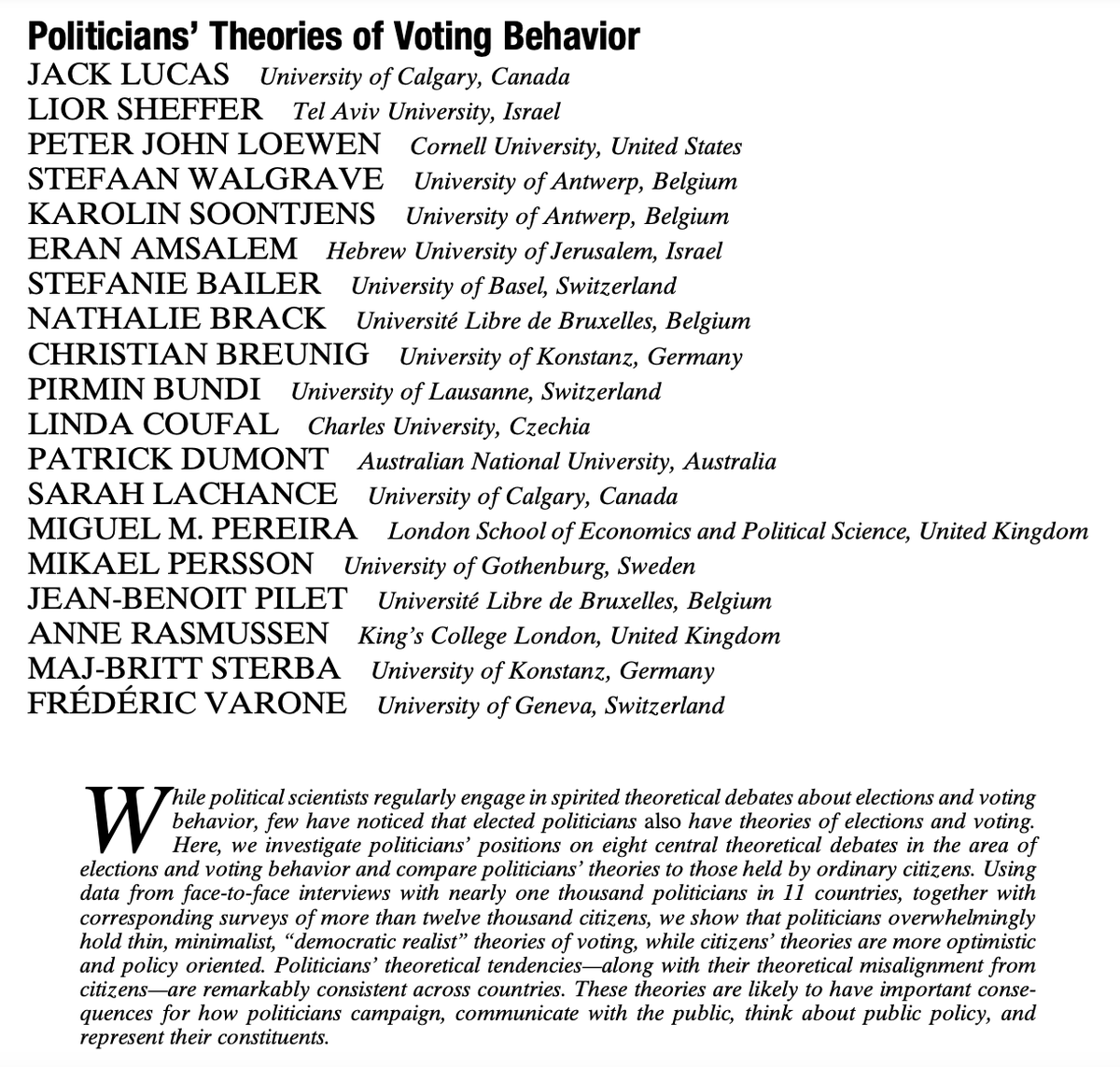

Yesterday, our research group joined forces with the Faculty of Social Science student club PSW (UniversityAntwerpFSW) to organize a US Election Night in which various of our members gave a key note talk on key topics on the #Election2024 in the US




🚨Does elite ideological polarization lead to mass ideological polarization? My latest article in European Journal of Political Research (EJPR journal) provides **limited** evidence that it is the case. Let's break it down 🧵
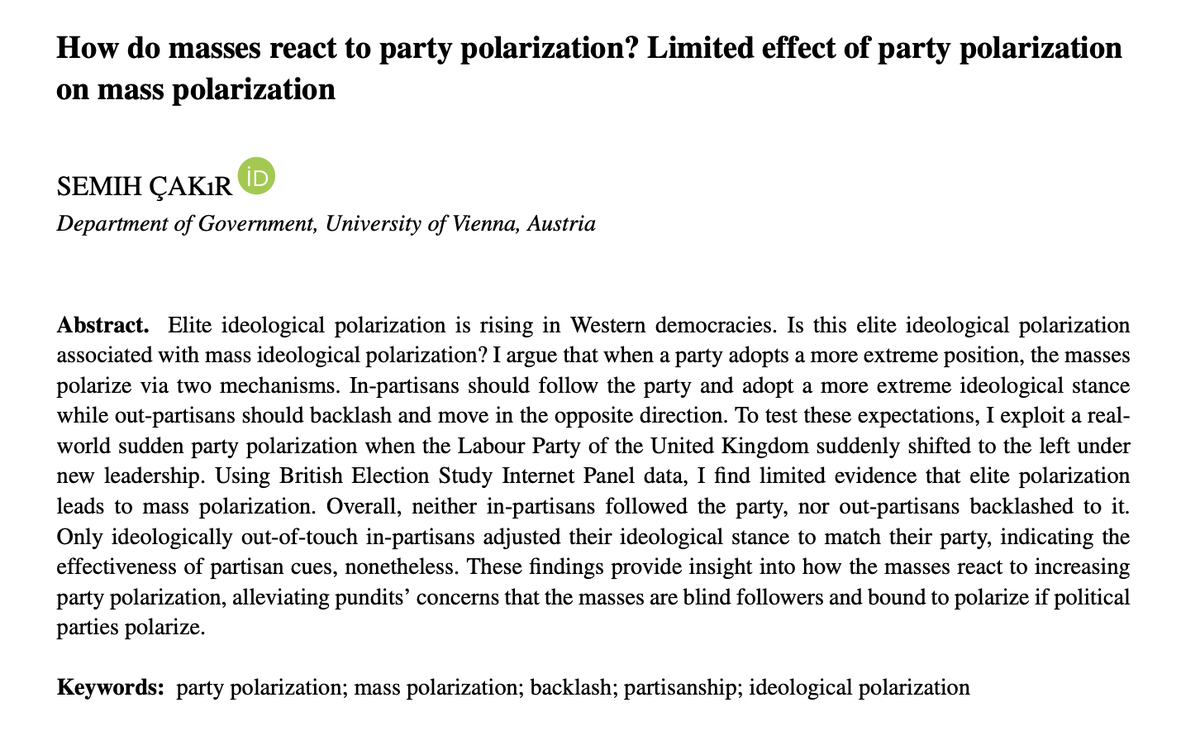

🆕United in #success or fragmented in failure? 🤔 Using the #ComparativeStudyofElectoralSystems data 📊 Jochem Vanagt & Markus Kollberg question whether democratic institutions can mitigate affective polarization to make #Coalitions affective. 📑 👉 ow.ly/hq9Y50VtakX #OA

📘 Based on EJPR journal research, Jochem Vanagt & Markus Kollberg (ECPR_POVB) show that #Coalition governments bring voters of different parties closer together only if people believe those coalitions are doing a good job 👍. bit.ly/4k0lKs3


